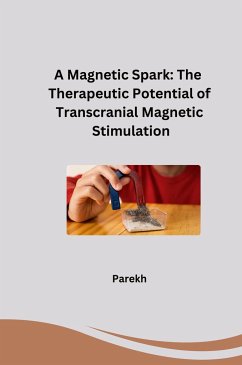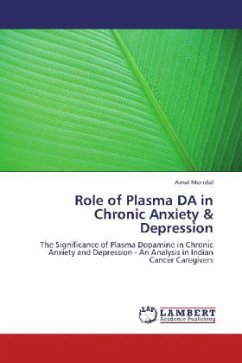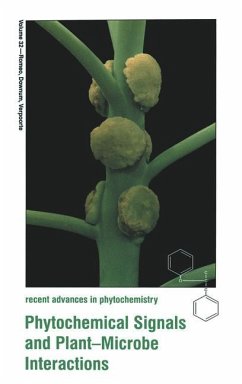
Cholinergic Stress and Anxiety Signals involve Alternative Splicing
Anxiety-associated changes in Neuronal alternative splicing: a rapidly spreading post-transcriptional process with profound behavioral implications
Versandkostenfrei!
Versandfertig in 6-10 Tagen
39,99 €
inkl. MwSt.

PAYBACK Punkte
20 °P sammeln!
Ever since the human genome project has beencompleted, it became clear that a surprisingly smallnumber of human genes generated the immense diversityof proteins composing our body. Alternative splicinghas emerged as a key explanation for this expandeddiversity. This cut-and-paste mechanism can yieldnumerous proteins from one gene, depending on thecell type, its development state and the externalenvironment. Of note, both normal aging andpsychological stress reactions modify the alternativesplicing process in brain neurons, and miss-splicingof alternative genomic sequences is increasinglyrecogn...
Ever since the human genome project has been
completed, it became clear that a surprisingly small
number of human genes generated the immense diversity
of proteins composing our body. Alternative splicing
has emerged as a key explanation for this expanded
diversity. This cut-and-paste mechanism can yield
numerous proteins from one gene, depending on the
cell type, its development state and the external
environment. Of note, both normal aging and
psychological stress reactions modify the alternative
splicing process in brain neurons, and miss-splicing
of alternative genomic sequences is increasingly
recognized as a frequent cause and consequence of
human disease, especially in the nervous system. In
this book we describe research work in which we
explored the role(s) of alternative splicing in
controlling neuronal development and
neurotransmission processes and in altering behavior,
using recent techniques in molecular genetics and
transgenic engineering. By linking genes, proteins
and behavioral concepts together, a future
application could be the development of a blood test
diagnostic application for the assessment of one''s
anxiety level at the time of measurement.
completed, it became clear that a surprisingly small
number of human genes generated the immense diversity
of proteins composing our body. Alternative splicing
has emerged as a key explanation for this expanded
diversity. This cut-and-paste mechanism can yield
numerous proteins from one gene, depending on the
cell type, its development state and the external
environment. Of note, both normal aging and
psychological stress reactions modify the alternative
splicing process in brain neurons, and miss-splicing
of alternative genomic sequences is increasingly
recognized as a frequent cause and consequence of
human disease, especially in the nervous system. In
this book we describe research work in which we
explored the role(s) of alternative splicing in
controlling neuronal development and
neurotransmission processes and in altering behavior,
using recent techniques in molecular genetics and
transgenic engineering. By linking genes, proteins
and behavioral concepts together, a future
application could be the development of a blood test
diagnostic application for the assessment of one''s
anxiety level at the time of measurement.












